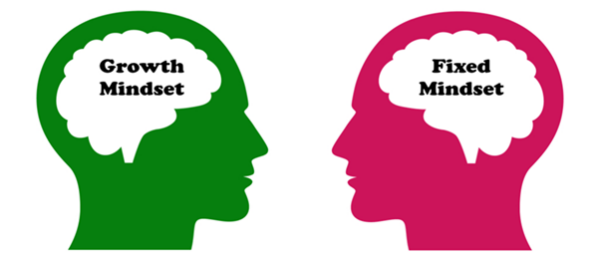Growth Mindsets
Leading educationalist, Professor Carol Dweck, tells us that we have either a growth mindset or a fixed mindset. In a nutshell, those with a growth mindset are more likely to be happy and successful as they understand the importance of self-belief, effort and hard work in achieving success.
Those with a fixed mindset believe that they are either good or not good at something; they are what they are change is either not possible or too frightening to attempt. As a consequence, people with a fixed mindset are unwilling to take on new challenges or put in that extra effort. Fixed mindset people often miss out on valuable opportunities for fear of failing.

| More open to challenges and feedback | Think intelligence is a fixed trait – born clever |
| Resilient in the face of failure | See mistakes as a sign of failure |
| Convinced effort makes a difference | Do not think that effort makes a difference – ability counts |
| Likely to rise to the top- and stay there | Bothered about how intelligent they look |
How can we develop a Growth Mindset?
We believe that there are four key elements to developing a Growth Mindset:
• Having the determination and perseverance to self-manage ourselves so that we do not give up even when faced with difficulties and stumbling blocks. Grit is about making the effort when we feel like giving up.
• Having the will power to take on new challenges even if it means making a mistake. More importantly, it is having the ability to deal with failure and learning from these mistakes so that we can improve.
• Understanding that our brain is a muscle and just as we would exercise our bodies to make them stronger, we need to do the same with our brains. This gives us learning strength and builds our brain power.
• Using positive language in our learning that is linked to the effort we put into our work rather than praising someone for how clever they are. Make sure that we provide positive feedback that encourages determination and effort so that we do not give up.
For further information regarding Carol Dweck’s research please click here

